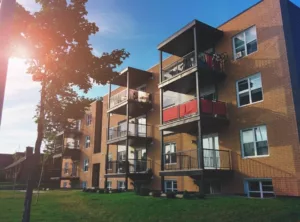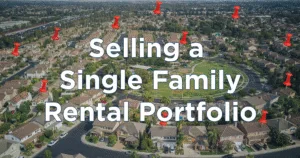Over the past year, the for-sale housing market has remained extremely tight, with substantial price increases, because of limited inventory.
In these types of times, investors begin considering condo conversion opportunities to provide more for-sale housing for residents who desire to own. Converting rental housing into for-sale housing can be a lucrative strategy, but careful consideration of many factors is important.
The Conversion Process
- Legal and Regulatory Compliance: Before embarking on the conversion journey, it is crucial to thoroughly research and understand the legal and regulatory requirements in the target location. Condominium conversion laws vary, and compliance is essential to avoid legal complications.
- Market Analysis: Conduct a comprehensive market analysis to assess the demand for condominiums in the area. Understanding the local real estate market trends, pricing dynamics, and buyer preferences will inform your decision-making process and help set realistic expectations for the project’s success.
- Financial Feasibility: Evaluate the financial feasibility of the conversion. Consider the costs associated with renovations, legal compliance, marketing, and sales efforts. Additionally, assess the potential sale prices of the condo units to determine the profitability of the project.
- Renovations and Upgrades: Multifamily properties may require renovations and upgrades to meet the expectations of condo buyers. This could involve enhancing individual units, improving common areas, and adding amenities that appeal to potential buyers. Striking the right balance between cost-effective upgrades and added value is crucial.
- Separation of Utilities and Systems: Condo conversion from multifamily properties often requires the separation of utilities and systems to create individual units. This may involve installing separate water and electrical meters, as well as ensuring each unit has its own HVAC system. Compliance with building codes is paramount during this phase.
- Legal Documents and Association Set Up: Drafting and recording the necessary legal documents for the condominium association is a critical step. This includes creating the condo declaration, bylaws, and other governing documents. Establishing the condominium association and addressing issues related to shared spaces, responsibilities, and fees are vital aspects of the process.
Considerations and Challenges
- Tenant Relations: If the multifamily property is currently occupied by tenants, managing the transition with sensitivity is crucial. Communication and clear timelines can help minimize disruptions and foster positive relations. Some jurisdictions may have specific tenant protection laws that need to be considered.
- Sales and Marketing Strategy: Developing a robust sales and marketing strategy is essential. Highlighting the unique features and advantages of the condominiums, utilizing effective advertising channels, and engaging with the right real estate professionals can all contribute to a successful sales campaign.
- Financing Challenges: Securing financing for the conversion can be challenging. Lenders may view condo conversions as riskier endeavors and the financial stability of the project is a key consideration for obtaining loans. Investors should also be aware that the end buyer for the condo conversion may have challenges with financing. Conventional loans backed by government-sponsored entities like FHA have restrictions on how many units may be rented in a community, so providing the financing during a transition may be challenging. There are also requirements for the condo to have approval through these entities, which involves a careful review of budgets and strength of standing.
Conclusion
By carefully navigating the legal, financial, and market considerations, investors can successfully transform rental properties into coveted condominiums, unlocking a new realm of profitability in the dynamic world of real estate.
If you’re looking to grow your real estate investments with unique strategies, contact us today.






